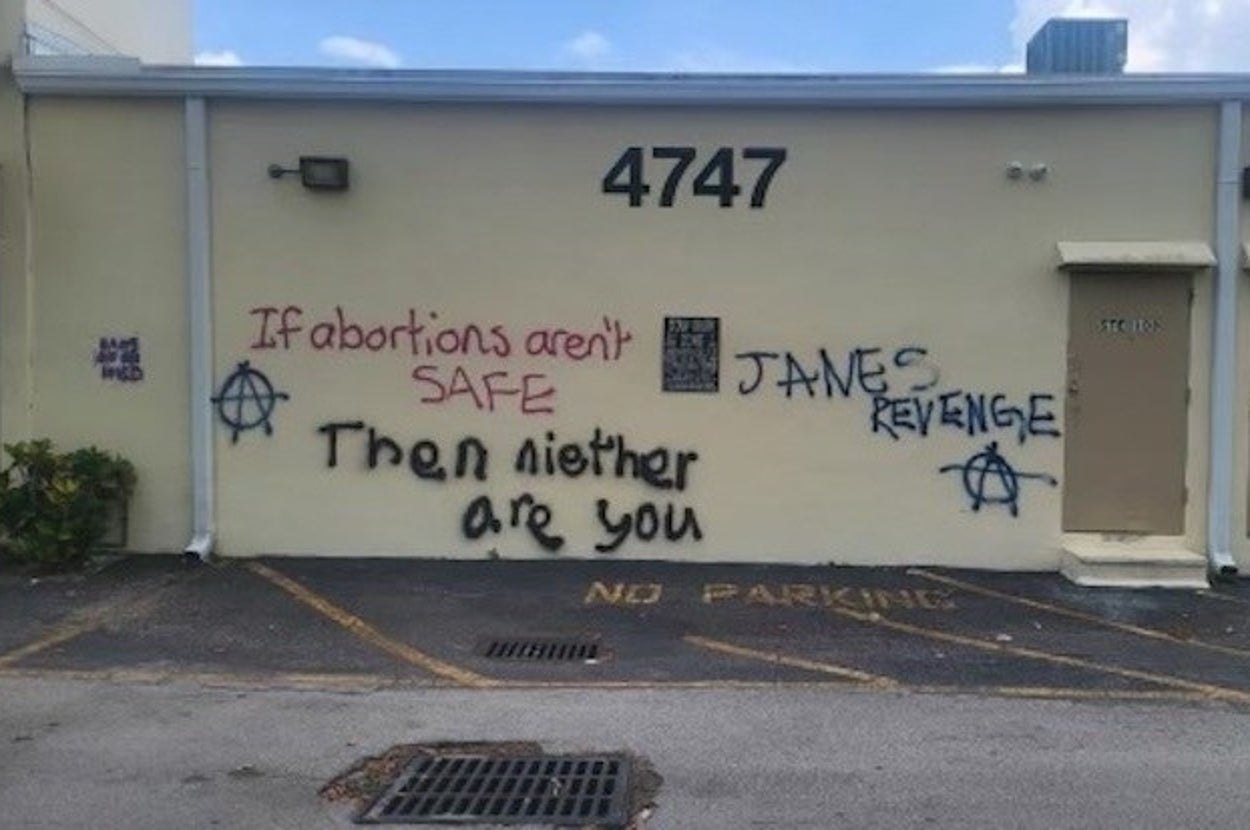In recent developments concerning the on-going tensions surrounding abortion rights, two individuals from Florida have been formally charged with serious federal offenses linked to allegations of vandalizing facilities that provide alternative options to abortion. The implicated centers offer various support services to pregnant individuals, such as counseling and ultrasound testing but have become targets due to their stance on abortion.
The United States Attorney’s Office announced that Caleb Freestone, 27, and Amber Smith-Stewart, 23, were indicted by a federal grand jury in Tampa on January 18. Both have been charged with one count of conspiracy against rights and two counts of violating freedom of access to clinic entrances. This indictment sheds light on the pattern of escalating hostility towards organizations that diverge from the pro-choice standpoint.
According to the details released, the indictment was officially unsealed this past Tuesday. It reveals a series of planned actions against three “pregnancy help centers” which are positioned as providing abortion alternatives, this includes a broad range of services like counseling, pregnancy testing, and ultrasounds. These centers are frequently backed and operated by religious or pro-life groups.
The narrative of the indictment outlines that on May 28, 2022, Freestone and Smith-Stewart, alongside other unidentified accomplices, targeted one of such centers run by the Archdiocese of Miami, situated in Hollywood, Florida. During this incident, they spray-painted menacing messages on the walls of the facility, notably the phrase, “If abortions aren’t SAFE, then neither are you.” This act of vandalism occurred at a time when there was heightened sensitiveness surrounding the abortion rights debate, notably because a draft opinion from Justice Samuel Alito had been leaked, suggesting a potential overturning of nationwide abortion rights, a reality that was yet to be formally declared by the U.S. Supreme Court at that moment.
Rebecca Brady, the director of the Archdiocesan Respect Life group, expressed that the vandalism seemed to have a clear motive of intimidation and fear according to statements given shortly after the vandalism was discovered. She cited the surveillance footage that captured the act and which was subsequently used to assist police investigations. Publications about the incident also noted the appearance of an anarchist symbol and references to “JANE’S REVENGE,” a militant pro-abortion group that became more prominent following the leak of Justice Alito’s draft opinion.
Following the official Supreme Court decision on June 24, which indeed overturned Roe v. Wade, further acts of vandalism occurred. Notably, two days after this ruling, another clinic in Winter Haven, a city east of Tampa, was targeted. The vandals left behind phrases like, “We are everywhere,” “WE’RE COMING for U,” and “YOUR TIME IS UP!!”. A repetition of this aggressive stance was seen on July 3 at yet another facility located in Hialeah in the greater Miami area, reiterating the threat originally spray-painted in Hollywood.
From a legal perspective, the case falls under the jurisdiction of the Freedom of Access to Clinic Entrances Act (FACE Act), a law enacted in 1994 designed to protect the rights of individuals seeking to access clinics that provide reproductive health services, including abortion. This law makes it a federal crime to impede or intimidate clinic patients and employees.
The severity of the charges implies potentially grave consequences for Freestone and Smith-Stewart if convicted — facing up to 12 years in prison and fines totaling $350,000. These legal ramifications underscore the federal government’s stance on protecting both pro-choice and pro-life entities against acts of violence and intimidation.
In a public statement, Archbishop of Miami Thomas Wenski expressed his approval of the actions taken by law enforcement and the judiciary, characterizing the vandalism as acts of domestic terrorism and emphasizing that hate crimes should not be tolerated under any circumstances.
Up to this point, no attorney information has been made available for Freestone and Smith-Stewart, and attempts to reach Smith-Stewart for comment have yielded no immediate responses.
This case highlights not only the deep societal divides over abortion but also raises broader questions about the intersection of free speech, protest, and the limits of lawful dissent. As legal proceedings continue, this situation will likely serve as a significant point of reference in ongoing national conversations about the nature of activism, the protection of rights, and the consequences of overstepping legal boundaries.









